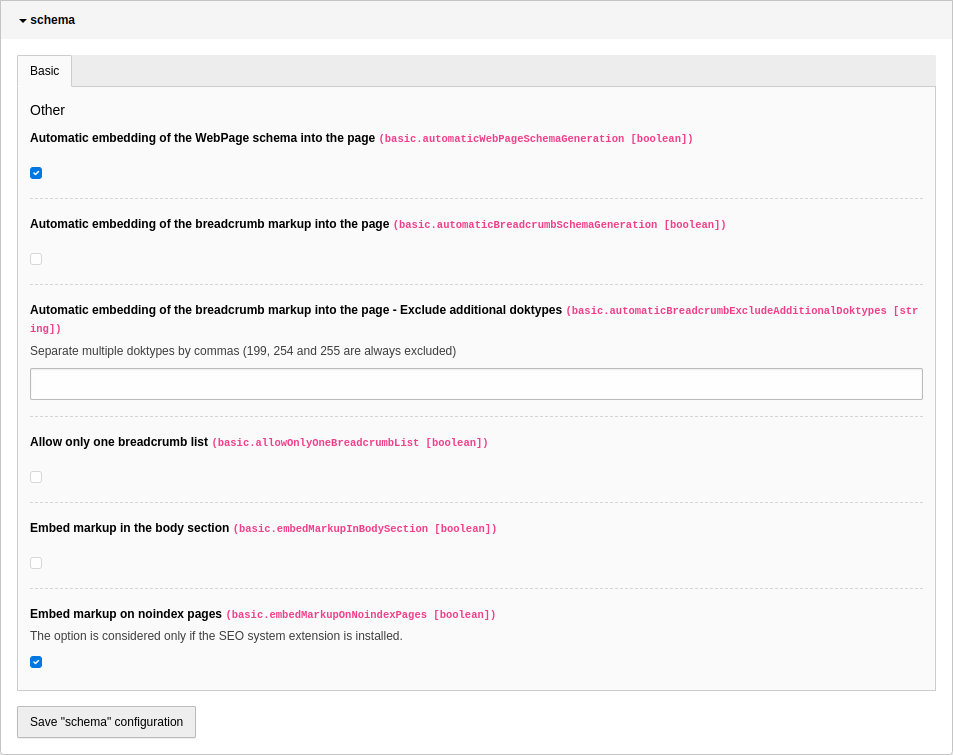Configuration¶
Target group: Developers, Integrators
Table of Contents
Extension configuration¶
To configure the extension, go to Admin Tools > Settings > Extension Configuration and click on the Configure extensions button. Open the schema configuration:

Options in the extension configuration¶
Automatic embedding of the WebPage schema into the page¶
If this option is enabled, the WebPage type schema is automatically embedded
into the page. The web page type can be defined in the field
Specific type of web page of the page properties
and defaults to WebPage.
- Default value
enabled
Automatic embedding of the breadcrumb markup into the page¶
If this option is enabled, the breadcrumb is automatically generated from the rootline of the current page.
- Default value
disabled
Note
Since multiple breadcrumbs are allowed for a page, this option adds a breadcrumb to the possibly already existing ones (for example, defined via the API or the view helpers).
Automatic embedding of the breadcrumb markup into the page - Exclude additional doktypes¶
If the option Automatic embedding of the breadcrumb markup into the page is enabled, you can define additional doktypes, which will be excluded from the breadcrumb. Separate multiple doktypes with commas.
The doktypes 199 (spacer), 254 (folder) and 255 (recycler) are always excluded.
- Default value
(empty)
Allow only one breadcrumb list¶
With enabled option only one breadcrumb list will be rendered. This may be helpful, if the option Automatic embedding of the breadcrumb markup into the page is enabled and you want to overwrite the generated breadcrumb list on a dedicated page with a custom one.
Embed markup in the body section¶
If this option is enabled, the schema markup is embedded at the end of the
<body> section. If it is disabled, it is embedded in the <head>
section of the page.
- Default value
disabled
Embed markup on "noindex" pages¶
If this option is enabled, the schema markup is embedded also on "noindex" pages.
- Default value
enabled
Note
The option is considered only if the SEO system extension is installed. If this is not the case, the markup is always embedded.
Cache configuration¶
The extension stores some data temporarily, for example, additional type properties. They are cached for better performance. By default, the cache uses the default database backend cache. You can reconfigure it to use a different cache backend. You can find further information in the chapter Caching of TYPO3 Explained.
For example, place the following snippet in the ext_localconf.php file
of your site package extension to use the file backend (which stores the data
in the file system) instead:
$GLOBALS['TYPO3_CONF_VARS']['SYS']['caching']['cacheConfigurations']['tx_schema']['backend']
??= \TYPO3\CMS\Core\Cache\Backend\FileBackend::class;
